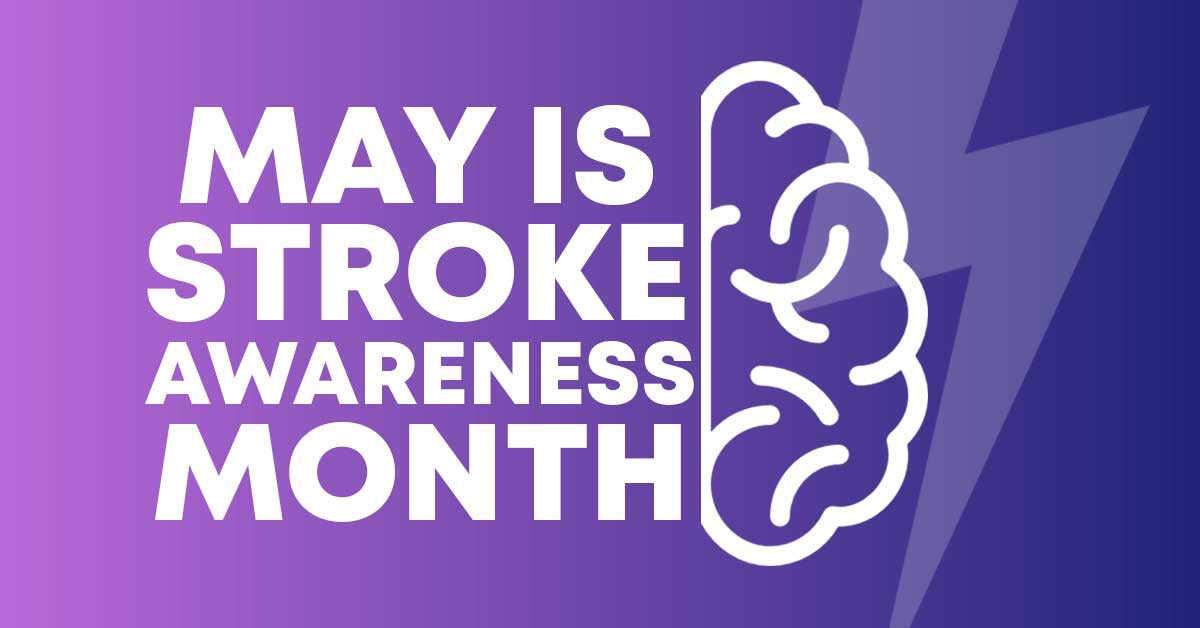With strokes, how fast you react can make a big difference in the outcome of this scary incident. UNC says nearly 2 million brain cells are lost each minute that a stroke remains untreated.
A stroke can happen to anyone, at any age. According to the American Stroke Association, strokes occur “by a clot obstructing the flow of blood to the brain or by a blood vessel rupturing and preventing blood flow to the brain.”
Because of this, a stroke is a cardiovascular disease (like a heart attack) and accounts for roughly 17% of all deaths from cardiovascular diseases.
Make a Lifestyle Change
The American Heart Association recommends following these 7 lifestyle guidelines to help reduce your risk:
- Manage blood pressure
- Control cholesterol
- Reduce blood sugar
- Stay active
- Eat better
- Lose weight
- Stop smoking
The good news is that though a stroke can happen to anyone, 80% of strokes are preventable by managing your health and reducing your risk.
Know the Signs
If you believe someone is having a stroke, act quickly to help them receive medical attention. Recognize these common signs of a stroke that can come on suddenly:
- Trouble speaking
- Trouble seeing
- Trouble walking
- Weakness on one side of your body
- Severe headache that comes out of nowhere
Additionally, be sure to make note of when you began to see symptoms as this will be helpful information for medical professionals. While it is rarely the case, CPR may also need to be performed during a stroke.
Avoid these Mistakes During a Stroke
Do not let the person having a stroke talk you out of calling 911 or tell you they can sleep it off. How quickly you react is important to help limit long-term damage caused by strokes.
Do not give them any medication, food, or drinks. A stroke can impact your ability to swallow, thus causing a potential choking hazard.
Do not drive to the emergency room and instead plan to take an ambulance. Because time is so critical during a stroke, it is often better to take an ambulance so you can receive medical attention while you are on the way to the hospital.


